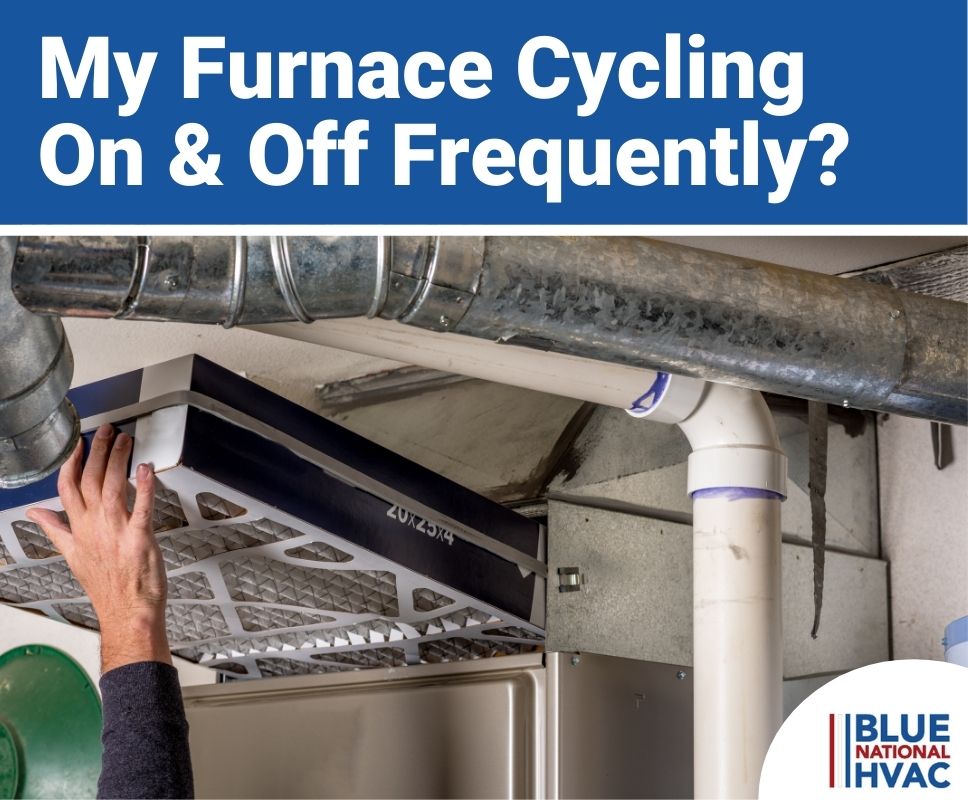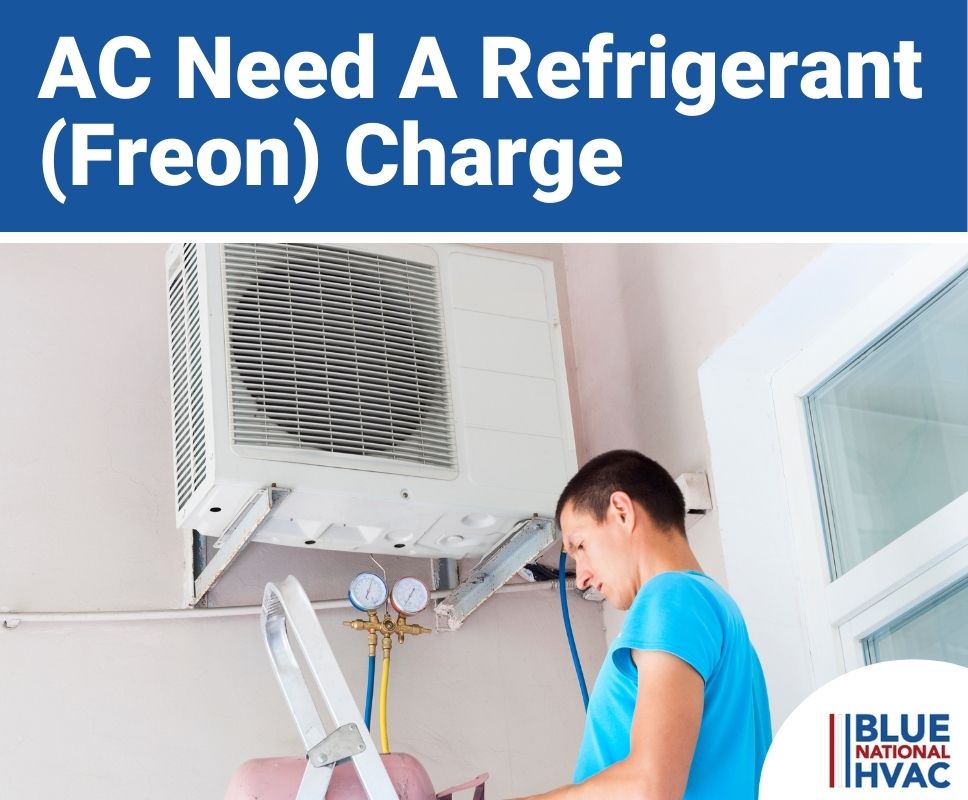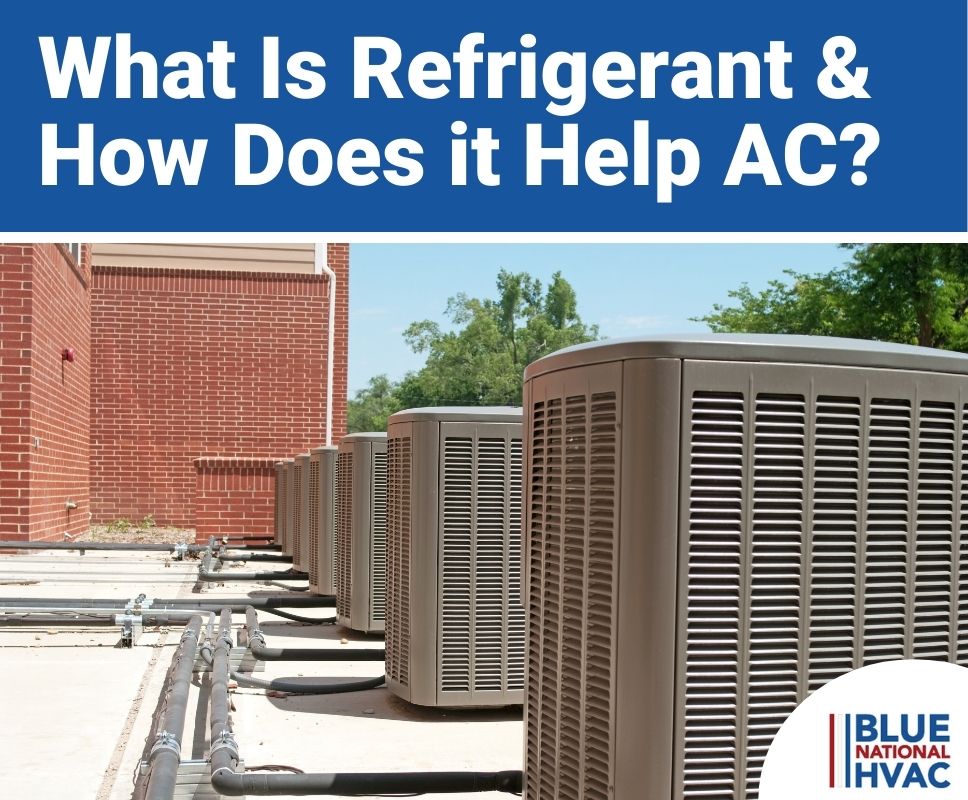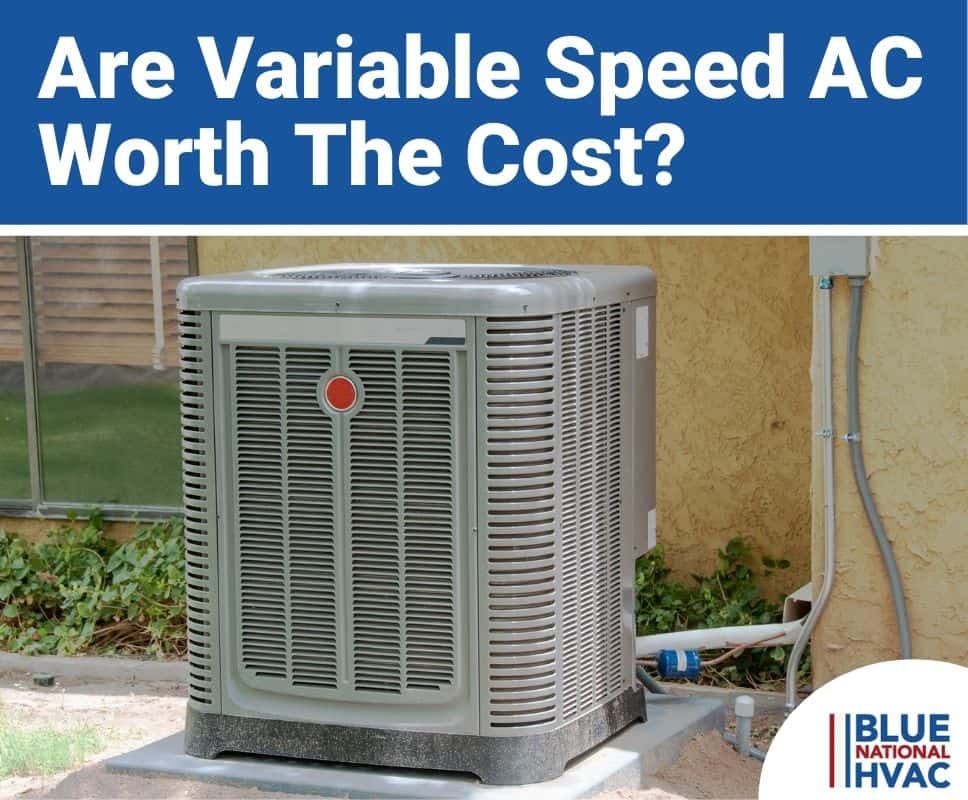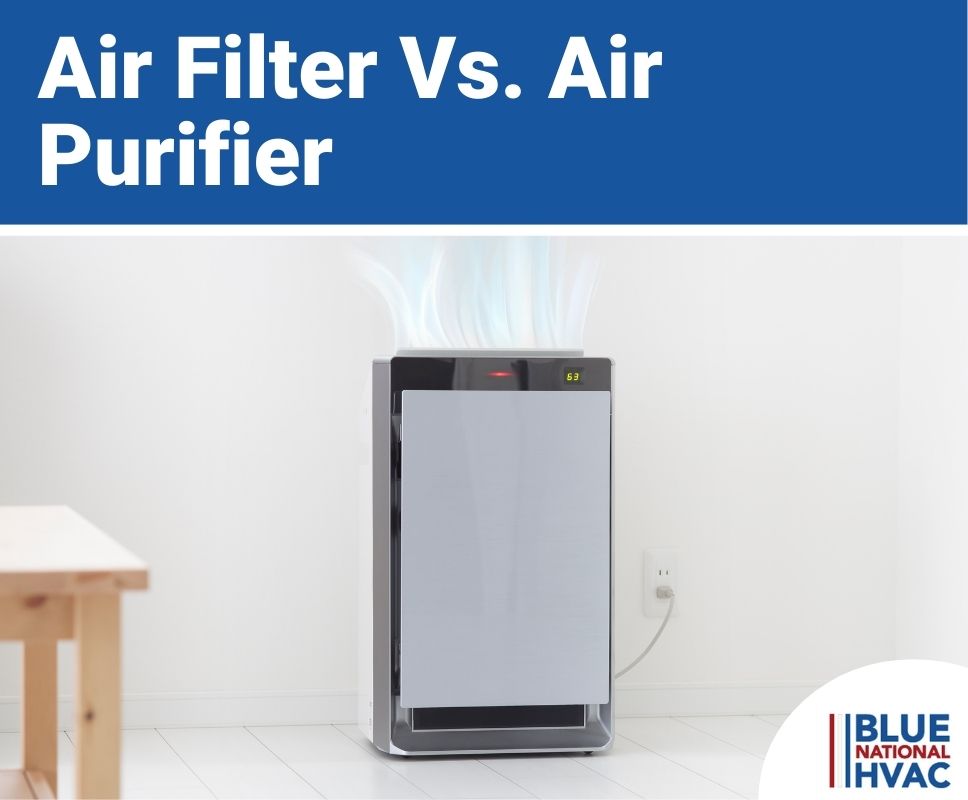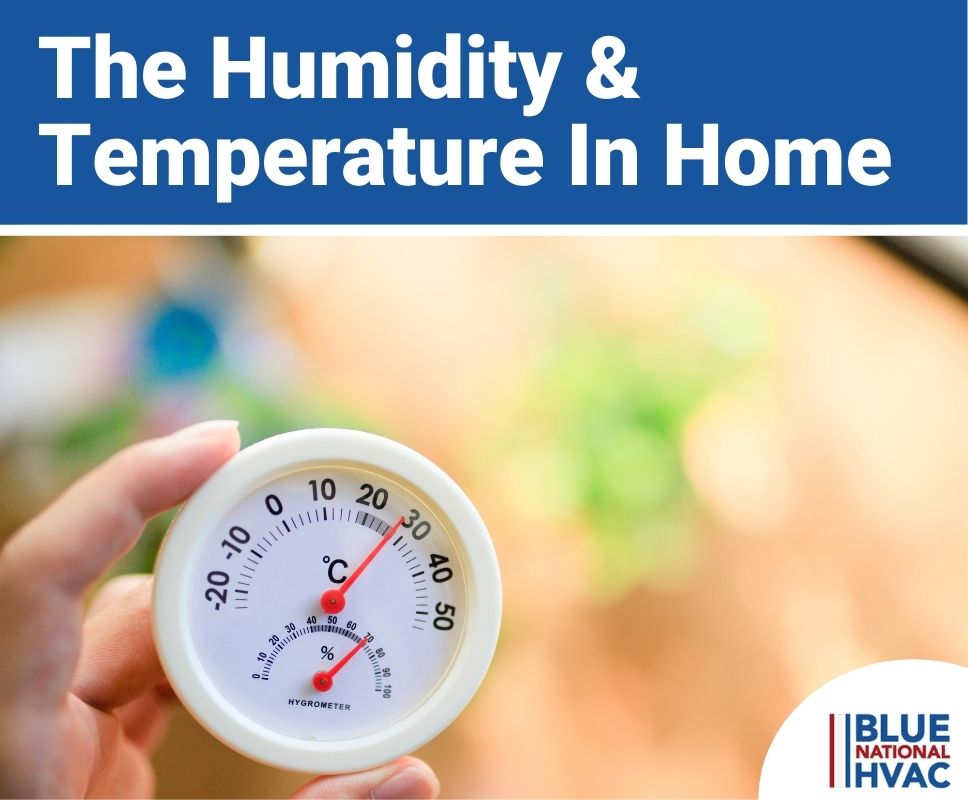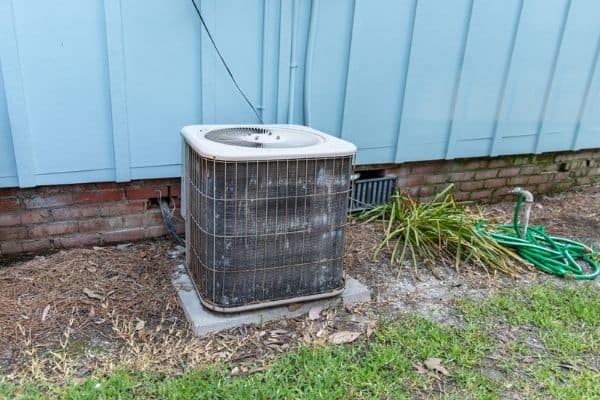Reasons For Furnace Cycling On and Off
When your furnace cycles on and off frequently after short intervals, it is called a short-cycling furnace.
It is a common issue among residential furnaces, and if homeowners don’t get it diagnosed and fixed quickly, it could lead to costly equipment failures, a cold home, and high energy bills.
Here are the most common causes of short cycling furnaces and their fixes.
Oversized Furnace
A furnace that is too large for your home, or an oversized furnace, is arguably the most common reason for short cycling.
When an oversized furnace short-cycles, it heats the home too fast and turns off abruptly. This cycle repeats anytime your home gets below the setpoint on the thermostat. It could overheat or underheat your home.
Let’s compare a furnace to pouring a soda. When you pour soda fast, bubbles and fizz will overflow the glass. On the other hand, if you pour it slowly, it will not fizz up and overflow.
An oversized furnace is like pouring soda too fast– the oversized furnace pushes in too much heat too quickly while not adding enough to keep it warm for an extended period.
Pouring the soda slowly would be akin to a properly sized furnace– it heats the home at a slow and steady pace, keeping it warm for a longer time.
Unfortunately, if the furnace is short-cycling because it is oversized, the only way to fix that is to replace it with a new furnace that is correctly sized.
Faulty Thermostat
Your thermostat is the brain of your furnace. It controls when your furnace turns on and for how long. If there is a malfunction with the thermostat, it could cause your furnace to short-cycle.
An internal relay might be burnt out, the wiring could have come loose, the circuit board could have shorted out, there may be a malfunctioning component, or it could even be incorrectly set.
If your furnace is short cycling, verify that the thermostat is set correctly first before investigating other potential causes.
Additionally, your thermostat could be installed in a less than ideal location. For example, a thermostat installed directly above a heat register will detect the heat from the incoming airflow and think the home is heated already. If this is the case with your home, the easiest solution is to move the thermostat. For assistance, give our team of HVAC experts a call today.
Low Airflow
If your furnace is shutting down too quickly only to start back up immediately and repeat multiple times, it could be due to insufficient airflow. Low airflow typically occurs due to the following:
Dirty Air Filter
If you don’t change your furnace filter frequently enough, it becomes saturated with dust and dirt, causing your heat exchanger to overheat. The best guideline to follow is to change your filter every 60 to 90 days to maintain proper airflow and indoor air quality.
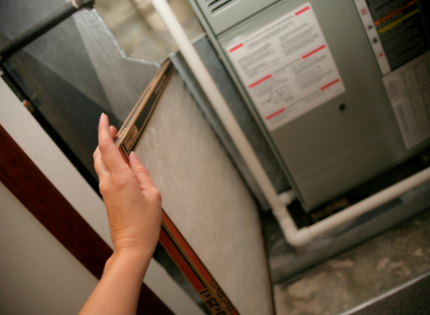
Dirty Blower
If the inside of your furnace gets too dirty, it could saturate the blower motor with dust and other grime. If the blower wheel gets too dirty, it will get weighed down by the dust and begin to run slower and less efficiently. The best weight to prevent a dirty blower is by keeping your air filter clean.
Blocked Supply Vents
If you have too many of the supply vents in your home blocked off, it will limit the airflow from the furnace. If your furnace is short-cycling, you should inspect the air vents in every room. Ensure they are fully open and that no furniture, boxes, clothing, or other items are inadvertently blocking them.
Clogged ductwork
Besides blocked exhaust vents, your ductwork may become clogged with pet hair, especially if your home has many pets. If that is the case, it will block airflow and could cause your furnace to short cycle. To fix this issue, the ductwork will need to be cleaned.
For the ductwork to be adequately cleaned, HVAC technicians use a special vacuum cleaner. It fits and weaves through your ductwork and sucks up all the contaminants. If you think you need your ducts cleaned, give our HVAC professionals a call today.
Dirty Flame Sensor
Along with low airflow, a dirty or corroded flame sensor also could be the cause of a short-cycling furnace. The flame sensor tells the controller of your furnace whether or not the gas valve is open and burning natural gas to warm the heat exchanger.
Dirt and corrosion can cause the flame sensor to incorrectly detect a lack of flame and turn the gas valve off (to prevent a gas leak). In this case, the furnace could turn on and off frequently until an HVAC technician cleans or replaces the flame sensor.
Blocked Flue
The flue pipe is the exhaust for the combustion gases of the furnace. Think of it as the chimney for your heating system. Typically, it sticks out of the top of your roof and can become clogged with leaves, twigs, or animal nests.
If it is blocked, it will cause the furnace to overheat and trigger your furnace to shut off after only running a few minutes. This is a built-in safety to prevent overheating.
A blocked flue should only be serviced by an experienced and certified HVAC contractor to remove the blockage without damaging the flue.
What Are The Negative Effects of Furnace Short Cycling?
A short-cycling furnace can negatively affect your comfort, the condition of the furnace, and your energy bills. Here are the top 3 reasons why.
Cold Home
When a furnace short cycles frequently, it usually fails to adequately heat your home. This means it will leave you in the cold, forcing you to call for emergency HVAC service in the middle of the night.
More Repairs
High-frequency short-cycling of a furnace will result in an exceptionally high degree of wear and tear on all of its critical components. This means more frequent andcostly repairs than a furnace operating normally.
High Gas Bills
When a furnace cycles on and off frequently, it burns more fuel than if it were running steadily. As such, a short-cycling furnace could run your utility bill up higher than you might expect.
Other Signs Of Furnace Problems
Besides cycling and on and off frequently, broken furnaces can exhibit other symptoms. Usually, an experienced HVAC technician can pinpoint the symptom and quickly diagnose the problem.
Below are some common signs of furnace problems:
Blowing cold air
If cold air is blowing out of your supply vents, this could mean one of two things. Either your thermostat is set to “cool,” and the air conditioning is on, or your furnace has a critical issue. A furnace might be blowing cold air due to any of the following reasons:
- Shorted control board
- Pilot light is out
- Clogged air filter
- Gas valve has failed
- Flame sensor is dirty
Abnormal noises
Furnaces will occasionally make some bumps and thumps, but they should only make a slight humming noise during regular operation. If your furnace is making a racket and producing screeching, clanking, or other loud sounds, give our team of HVAC experts a call for assistance.
Bad Odors
Under normal circumstances, your furnace should not be producing bad smells. If it does, watch out for a rotten egg or sulfur smell, which is indicative of a gas leak. In this case, leave the home and call the fire department for assistance.
Other bad smells produced by a furnace could be from dead animals, nests, or mold and mildew.
How To Save Money When Fixing A Short Cycling Furnace?
To save money fixing a short-cycling furnace, you can try diagnosing the cause of the issue yourself first. Use this guide as a troubleshooting reference checklist and only work on non-critical components.
For example, you can check if the thermostat setting is correct or the filter is clogged, and you can relight the pilot light if it is out. However, unless you’re an HVAC technician, you shouldn’t attempt to rewire a thermostat or clean your flue. In fact, if you accidentally put holes in the flue, it could cause carbon monoxide to leak into your home.
Additionally, to save the most money, you will want to diagnose and address the issue as soon as possible. A short-cycling furnace could lead to additional costly furnace repairs and a much higher gas bill if left unchecked. If you have a short-cycling furnace and need help, give our HVAC experts a call now.

